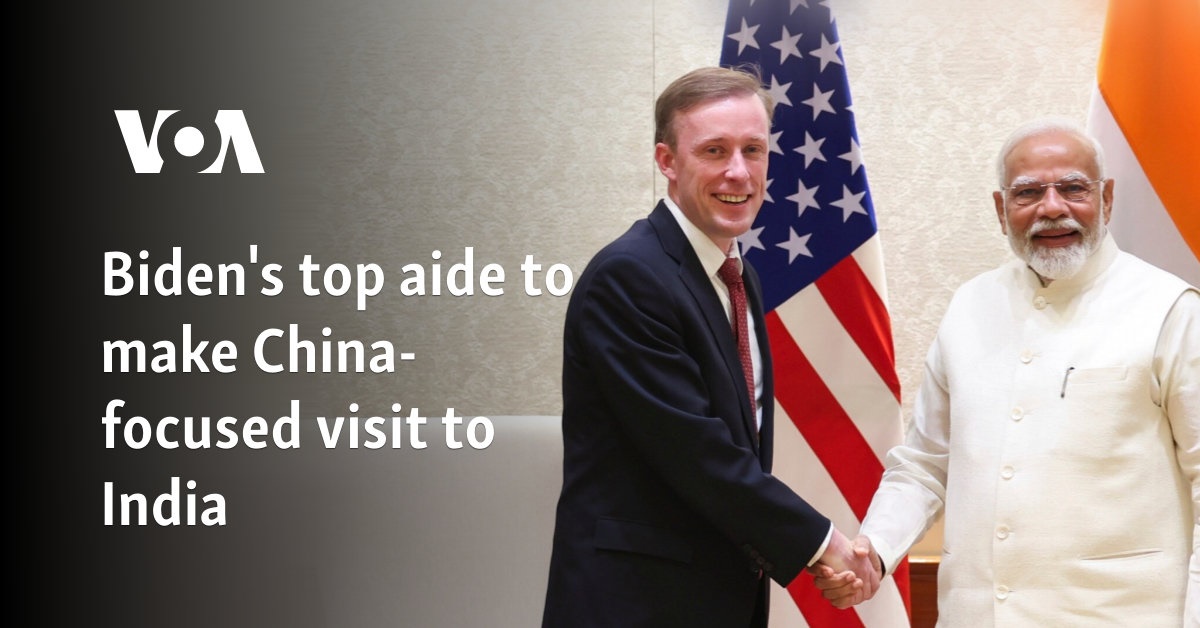President Joe Biden's national security adviser, Jake Sullivan, will make his final visit to India next week to highlight Washington's partnership with New Delhi, the White House announced Friday.
The visit will cap the Biden administration's efforts to maximize ties with Prime Minister Narendra Modi's government, as part of its strategic direction to counter China's influence in the Indo-Pacific.
Strengthening ties with India has been “a real foreign policy priority and area of legacy success for the Biden administration,” a senior administration official said on condition of anonymity on Friday. from a press briefing to journalists.
Sullivan will visit New Delhi on January 5-6 to discuss a range of issues, including the civil nuclear partnership, China's overcapacity in semiconductor and biopharmaceutical supply chains, strategic technology cooperation and d other shared security priorities, a second administration official said.
Sullivan's visit comes as tensions rise between India and China over Beijing's plan to build what he calls the “world's largest hydroelectric dam” on the Yarlung Zangbo River on the eastern edge of the Tibetan Plateau, which could affect millions of people downstream in India and Bangladesh.
Sullivan is expected to discuss the dam as well as other regional issues of concern, the first administration official said in response to VOA's question. “What matters to us is that when it comes to water resources that need to be managed between countries, they are treated fairly and equitably,” the official said.
Technology Initiative
One of the key themes of the visit is the relationship between the United States and India. initiative on critical and emerging technologies (iCET) an effort that Biden and Modi announced in May 2022 to strengthen their strategic technology partnership and defense industrial cooperation between their governments, businesses and academic institutions in diverse areas, from AI to quantum computing, and semiconductors to space.
Sullivan's visit will come just two weeks before President-elect Donald Trump takes office on January 20. Many expect iCET to continue under his administration.
“There is broad bipartisan support for some of the goals of iCET,” the second administration official said in response to VOA's question. These include “strengthening the resilience of technology supply chains, working with our allies and partners to position ourselves to offset the PRC.” [People Republic of China’s] advances in certain technologies and efforts to dominate certain supply chains.
The US strategic partnership with New Delhi “is based on the bet that India's growing economic, technological and military power is essential to fending off and containing China's dominance in these areas”, said Aparna Pande, director of the 'Initiative on the Future of India and the South. Asia at the Hudson Institute.
The irritants have not derailed bilateral relations. These include India's democratic backsliding and the case of a former Indian government employee charged in New York last year with murder for hire for his role in leading a foiled plot to assassinate a Sikh separatist and critic of Modi.
Most of Biden's policies toward India will likely continue, Pande told VOA, because Trump's desire to “repel or contain China's economic, technological and military rise will help ensure that the India be considered a partner in this endeavour”.
During his first administration, Trump enjoyed a warm relationship with Modi. Trump attended a “Howdy Modi” rally in 2019 in Texas, and Modi returned the favor by holding a “Namaste Trump” rally in Ahmedabad in 2020.




